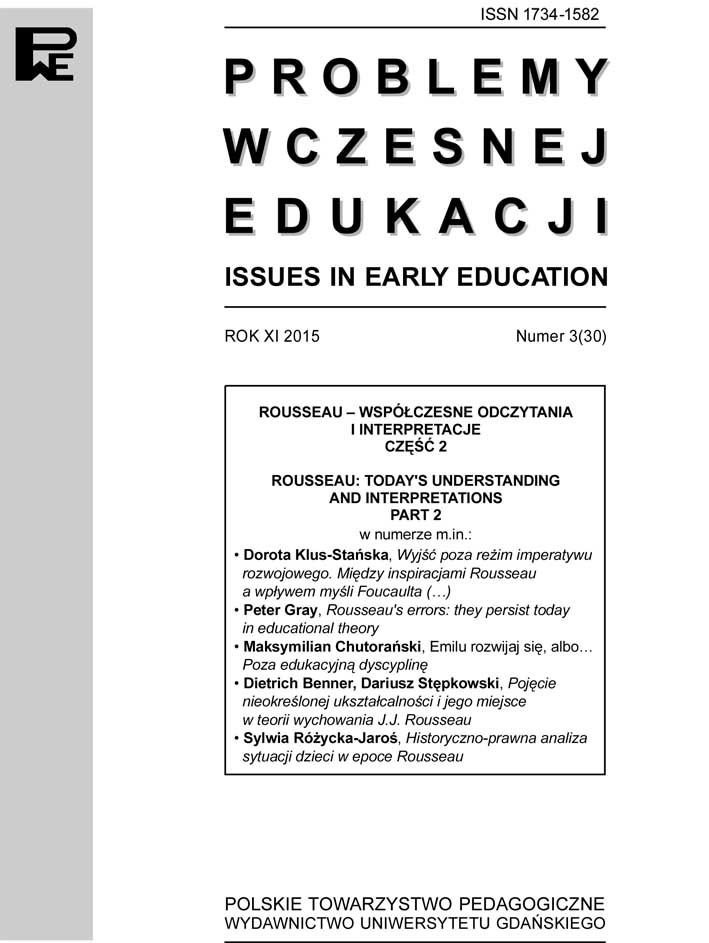Jeśli nie naiwność, to co? Próba rekonstrukcji idei dziecka u J.J. Rousseau
DOI:
https://doi.org/10.5604/01.3001.0008.9216Słowa kluczowe:
konstruowanie wizji dziecka, Rousseau, nowa socjologia dzieciństwa, dziecięca niewinność vs zepsucie, niedojrzałość vs kompetencja, zależność vs autonomiaAbstrakt
Categories of childlike innocence, immaturity and helplessness, which constitute the idea of a child accepted in Western societies, are regarded as obvious and undisputed. However, more and more often their obviousness is questioned by modern researchers, particularly the representatives of the new sociology of childhood, including A.W. Corsaro, A. James, C. Jenks, A. Prout, J. Qvortrup. They move away from the universal vision of an innocent child and emphasize the variety of ways of experiencing and understanding the world by children living in different social and cultural contexts. Therefore, they present the possibility to include such categories as competence and autonomy in the considerations on the construction of the image of a child. The author, assuming the above mentioned research perspective, attempts to read Rousseau’s idea of a child in the context of three pairs of contradictory categories: innocence/corruption, immaturity/competence and dependence/ autonomy. Going out of the category of child innocence makes it possible to notice that children are not only victims of aggression, but sometimes they are aggressors; that they not only submit to others, but also influence what is happening to them and around them; that they are endowed with the ability to cause events and in the same time, to be innocent and helpless beings to some extent. Such findings prove that going beyond innocence in the considerations on the child’s nature and examining it in the context of a wider range of categories is valid and legitimate. They also point at the ambiguity and complexity of the child’s nature, which allows us to question the obviousness and universalness of the idea of a child as a being that is innocent, immature, dependent and devoid of the ability to influence events.

 Uniwersyteckie Czasopisma Naukowe
Uniwersyteckie Czasopisma Naukowe





